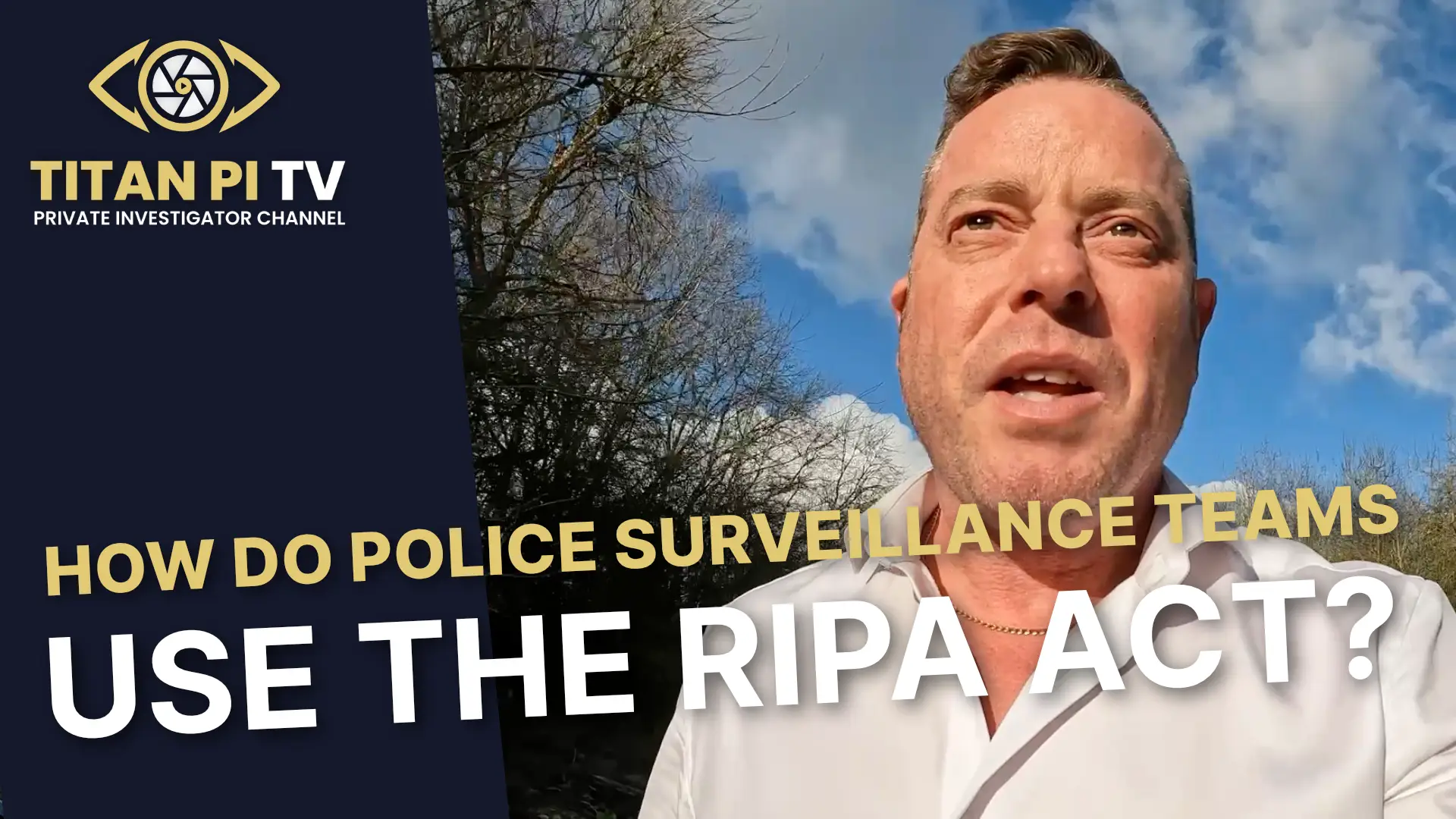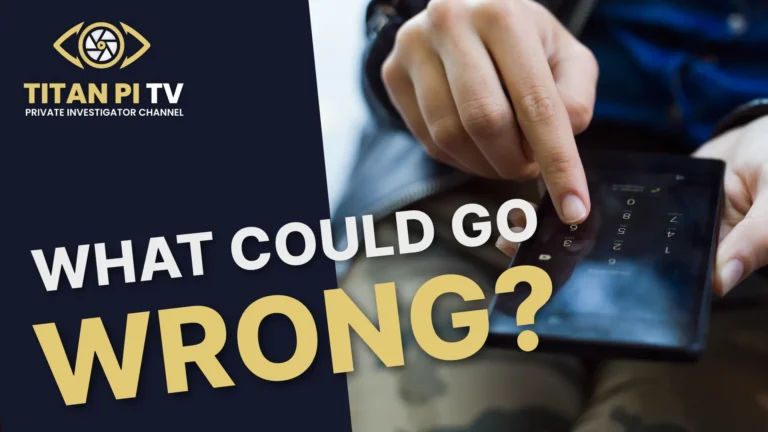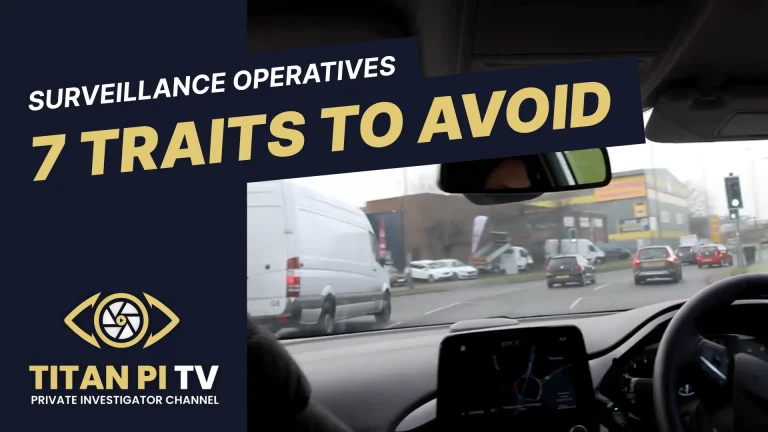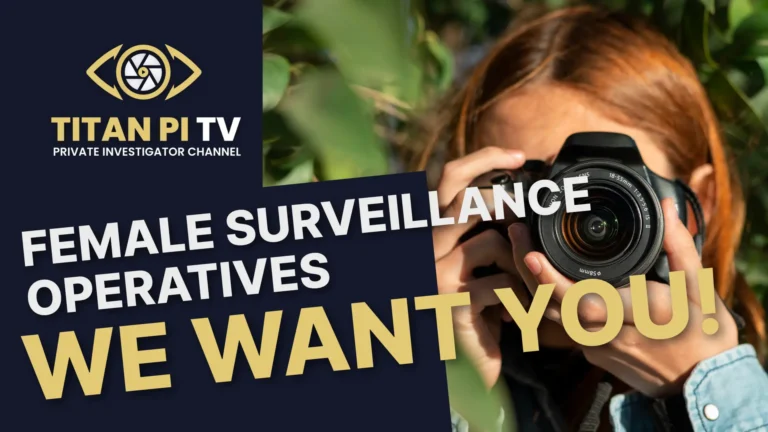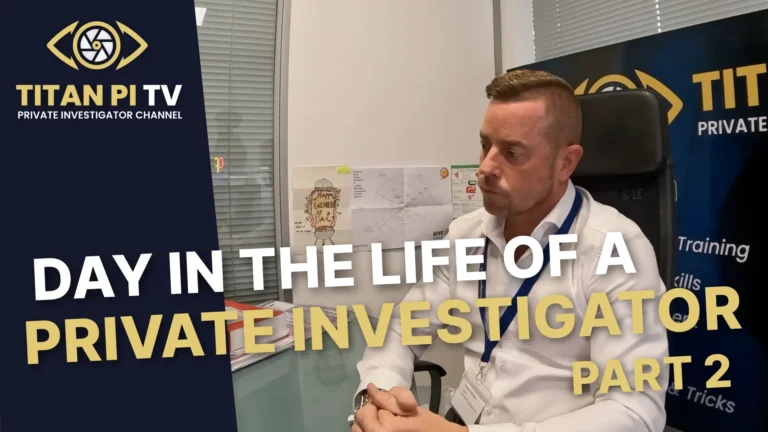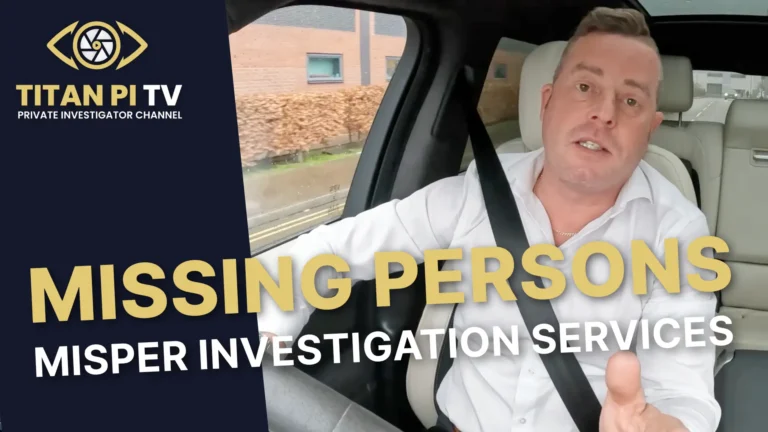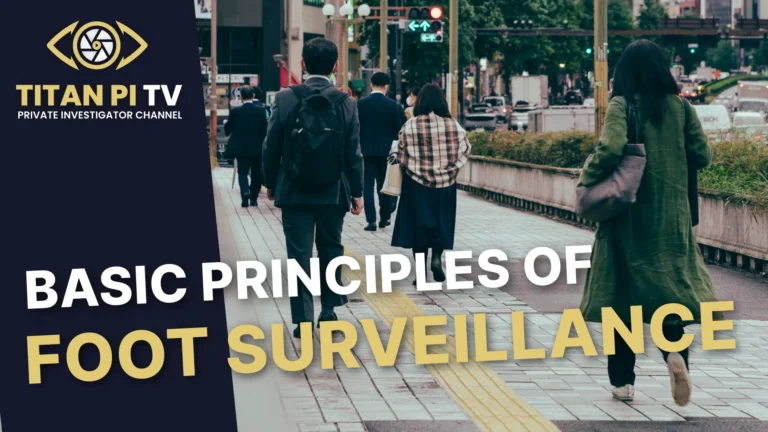How Do Police Surveillance Teams Use the RIPA Act?
Welcome to another insightful edition of Titan PI TV, where we peel back the layers of the investigative world to bring you a closer look at how operational agencies like Titan Private Investigation Limited operate. In this episode, we explore the Regulation of Investigatory Powers Act 2000 (RIPA), a cornerstone of surveillance regulation in the UK. Hosted by Simon Henson, Managing Director of Titan, this discussion sheds light on how public bodies, including the police, use RIPA to conduct surveillance—and how it impacts private investigators.
What is RIPA?
The Regulation of Investigatory Powers Act 2000, commonly known as RIPA, was introduced under the Labour government led by Tony Blair. It was designed to regulate how public bodies conduct surveillance and access electronic communications. The act ensures that such powers are used lawfully, proportionately, and with proper oversight.
RIPA applies to any organization funded by the public purse, including local councils, housing associations, the NHS, trading standards, and, of course, the police. For private investigators, understanding RIPA is crucial, especially when working on behalf of these public bodies.
Who Needs RIPA Authority?
A “public body” is any organization funded by taxpayers. This includes:
- Local Councils: For issues like fly-tipping, councils may hire private investigators to deploy static cameras or physical surveillance teams.
- Housing Associations: To tackle antisocial behavior, housing associations may require surveillance, necessitating RIPA authority.
- The NHS: In cases of suspected absenteeism among staff, such as nurses or doctors, the NHS may commission surveillance to verify claims.
- Trading Standards: When investigating fraudulent activities, such as handwriting analysis, RIPA authority is required.
- The Police: Any surveillance operation by the police must be authorized under RIPA.
The key takeaway? If a private investigator is instructed by a public body, RIPA authority must be in place before any surveillance begins.
The Three Parts of RIPA
RIPA is divided into three main parts, each addressing different aspects of surveillance:
- Part 1: Communications
This section deals with the interception of phone calls and other forms of communication. For private investigators, this area is off-limits. Intercepting communications without proper authority is illegal and can result in imprisonment. - Part 2: Surveillance
This is the most relevant section for private investigators. It covers directed and intrusive surveillance, as well as the use of covert human intelligence sources (CHIS), commonly known as informants. - Part 3: Electronic Data
This part governs the interception of emails and other electronic data. Like Part 1, it is not applicable to private investigators, as unauthorized interception can lead to severe legal consequences.
Directed vs. Intrusive Surveillance
Under Part 2 of RIPA, surveillance is categorized into two types:
- Directed Surveillance
This refers to pre-planned surveillance targeting a specific individual or group. For example, if the NHS suspects a nurse of fraudulent sick leave, surveillance to monitor their activities would fall under this category. - Intrusive Surveillance
This involves surveillance inside a vehicle or property, such as installing a camera in a residential home or placing a listening device in a car. Intrusive surveillance requires a higher level of authorization due to its invasive nature.
Who Can Authorize RIPA?
The level of authority required depends on the type of surveillance:
- Directed Surveillance: For local councils, authorization typically comes from the chief executive. In police operations, a superintendent can grant authority, either orally (for 72 hours) or in writing (valid for three months).
- Intrusive Surveillance: This requires authorization from a chief constable or assistant chief constable. Like directed surveillance, it can be granted orally for immediate operations or in writing for longer-term investigations.
RIPA and Private Investigators
While RIPA primarily applies to public bodies, private investigators must adhere to its principles when working on behalf of these organizations. At Titan, we take RIPA’s spirit seriously, even when it doesn’t legally apply. Our case management system ensures that every investigation is documented, with details about objectives, methods, and data retention.
We also conduct a Legitimate Interest Assessment for every case, asking:
- Is the investigation legal?
- Is there a less intrusive way to achieve the objective?
- Is the surveillance necessary, proportionate, and minimizing collateral intrusion?
Collateral intrusion refers to the unintentional collection of information about individuals not directly involved in the investigation. For example, if surveilling someone in an apartment building, we must ensure we’re not recording unrelated residents.
Why RIPA Matters
RIPA is often misunderstood, with many assuming it applies to all private investigations. In reality, it only comes into play when a public body is involved. However, at Titan, we believe in upholding the highest ethical standards, ensuring our methods are always necessary, proportionate, and respectful of privacy.
What’s Next on Titan PI TV?
In next week’s episode, we’ll dive into the fascinating world of surveillance detection. Simon will share his expertise on how to spot a surveillance team, offering tips and insights from his years of experience in the field.
If you enjoyed this episode, don’t forget to give us a thumbs up and subscribe to Titan PI TV for more exclusive content. Until next time, stay safe and stay informed!
Titan PI TV: Uncovering the Truth, One Investigation at a Time.

